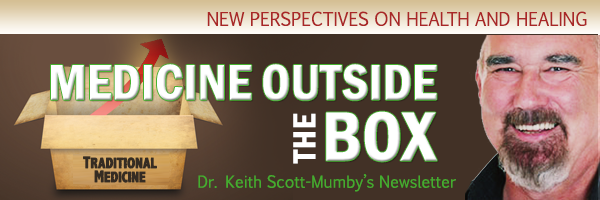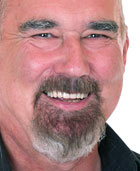
OK, This Is Your Test Exam Question!Let's see how much you know. Pretend I came to you with this symptom and asked you what to do!Here's the story: the patient is me (truly, this happened to me yesterday afternoon). I was sitting in a restaurant on the shores of lovely Lake Lucerne (photo), eating a plate with Parma ham and melon salad--a mix of watermelon, canteloupe and honeydew, drizzled with a balsamic dressing. It was delicious.
Suddenly, there came a sharp pain in the side of my cheek. Gosh, I thought, a fish bone spike! Then I realized that was silly; but it could have been a spicule of bone from the ham. I felt it with my tongue and it seemed soft and small. Nevertheless, the pain rapidly increased until I was forced to borrow a pair of lady's tweezers from a fellow diner and dash to the restroom. It was too dark to see much in the toilet so I literally groped blindly with the tweezers inside my mouth and, after a few minutes, got lucky. I pulled something out and the pain lessened a little. Back outside in the sunshine, I could see a strange object: it was a tiny soft round object, about 3 mm in diameter, with a little spiky "tail", another 2.5 - 3 mm long. It reminded me of a small piece of berry fruit with a spike, called a drupe (like in a blackberry). All was suddenly clear! YOUR QUESTION: what is the diagnosis? (what was this object?) and what treatment should you always have with you, for casual emergencies, that would have made this immediately more comfortable for me?to learn the answers, click this link(no it's not a sales link!) Is there a Fourth Wave? If so what is it?Let me remind you of the first three waves, defined for us by Alvin Toffler in his seminal book "The Third Wave". First Wave. The Agricultural Revolution or domestication. It started around 8,000 BC and led to stabilized food supplies and effectively the end of nomadic wanderings. The major consequence was cities and civilization. Big one! The Second Wave. Industrialization or mechanization. Another biggie. It started around 1760 in England and was the mechanization of labor. So this swung away from the agricultural scenario and towards urban life. It led to industrial might and the kind of personal wealth we see today. The Third Wave. The Information Age or digitization. Call it the knowledge economy. This started around 1940 with early computerization. As we all know, this revolution is well under way. It's led to the spread and democritization of personal affluence. But is it peaking? There are signs it is. As more and more people are moving into the knowledge economy, it's starting to lose its appeal, though it's difficult to escape its tentacles. The point is that the knowledge economy has trumped mechanization; and mechanization economy in turn roundly trumped the agricultural economy. So where is there to go from here? What could possibly trump the digital age? Jamie Smart in his new book "Clarity" makes a suggestion I go along with. What's more he backs it up with fascinating stories and evidence. It could be very valuable to you, to know what it is! Can you guess?... Go here to read about the "next" new waveBrilliant Medical Use Of Smart Phone Apps!We all love technology. But you may not have noticed some great uses of smart phones and simple apps. Here are two examples which enables eye exams of people in remote places, for example. EyeNetra’s invention is a way to measure refractive errors (near or far-sightedness) by combining a simple optical attachment with software on a mobile phone. With billions of people in the developed and developing worlds alike needing glasses to stand any chance of being able to read, you can imagine the impact on illiteracy, unemployment and poverty. eyeNetra points out that the cost of providing eye glasses is down to $3, but the cost of an eye exam is still far too expensive. iExaminerCoincidentally, I read a piece about an even better UK invention, called the iExaminer... The point is that over 80% of eyesight loss around the planet is preventable. But you have to find out quickly, by scanning a lot of people, who those at risk are. Sniffer Device Detects CancerPlus I saw a story about "smelling" bowel cancer. Sharp readers will remember a piece I did a few years back entitled "Doctor Fido will see you now!" about dogs being able to smell cancer in a patient by sniffing the skin. Well this is technology doing it. The dogs were not 100%, just pretty good and probably saved a lot of lives. But this device is so hot, it got the diagnosis 100% correct. A device called the Odoreader developed at the Institute of Biosensor Technology and the University of the West of England (Bristol), uses sensors to sniff out chemicals in urine and deliver an accurate bladder cancer diagnosis within 30 minutes, according to a study published in the Public Library of Science (PLoS ONE), 9 July 2013. Bladder cancer is the 9th commonest cancer in the world, so this is of considerable importance. The device was tested on 98 samples; 24 of these had bladder cancer. 74 samples were from patients known to have bladder infections but not bladder cancer. The sensor scored 100% and picked up all the cancer samples and rejected all samples that did not have cancer (ie. no false positives). This follows on from a study published earlier in 2013 from Zurich University put forward the idea that everyone has a unique "breathprint" -- our metabolite levels, visible on our breath, could be used to identify disease, it suggested. Other studies are now under way, looking for stomach cancer and heart disease. Read My Remarkable Anti-Aging Book!Amazing Advanced Anti-Aging science here: OutInFrontMedicine.com
Disclaimer All content within this information letter is commentary or opinion and is protected under Free Speech laws in all the civilized world. The information herein is provided for educational and entertainment purposes only. It is not intended as a substitute for professional advice of any kind. In no event shall Professor Scott-Mumby be liable for any consequential damages arising out of any use of, or reliance on any content or materials contained herein, neither shall Professor Scott-Mumby be liable for any content of any external internet sites listed and services listed. Always consult your own licensed medical practitioner if you are in any way concerned about your health. You must satisfy yourself of the validity of the professional qualifications of any health care provider you contact as a result of this newsletter. |


